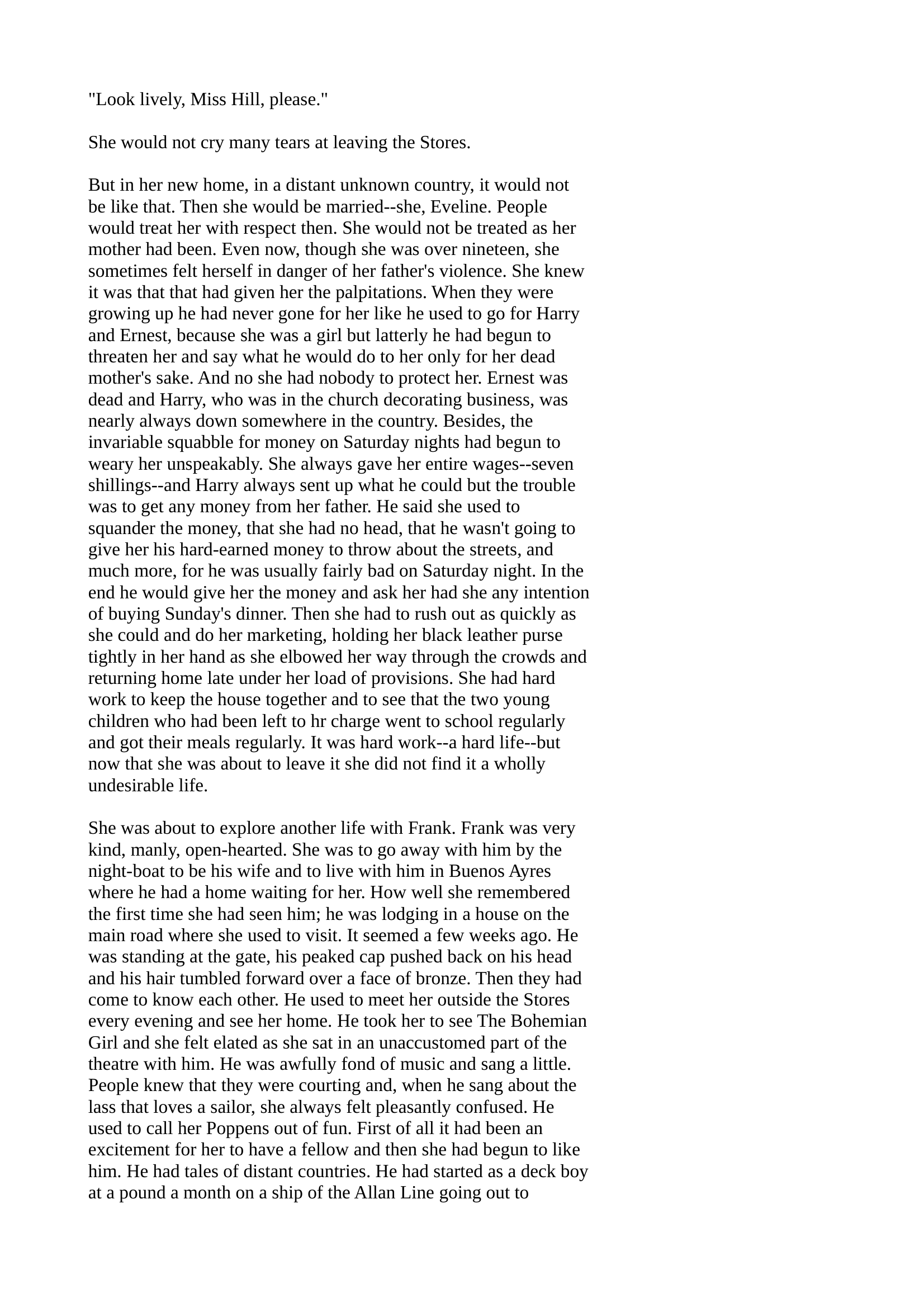Dubliners
Publié le 25/11/2012

Extrait du document
«
"Look lively, Miss Hill, please."
She would not cry many tears at leaving the Stores.
But in her new home, in a distant unknown country, it would not
be like that.
Then she would be married--she, Eveline.
People
would treat her with respect then.
She would not be treated as her
mother had been.
Even now, though she was over nineteen, she
sometimes felt herself in danger of her father's violence.
She knew
it was that that had given her the palpitations.
When they were
growing up he had never gone for her like he used to go for Harry
and Ernest, because she was a girl but latterly he had begun to
threaten her and say what he would do to her only for her dead
mother's sake.
And no she had nobody to protect her.
Ernest was
dead and Harry, who was in the church decorating business, was
nearly always down somewhere in the country.
Besides, the
invariable squabble for money on Saturday nights had begun to
weary her unspeakably.
She always gave her entire wages--seven
shillings--and Harry always sent up what he could but the trouble
was to get any money from her father.
He said she used to
squander the money, that she had no head, that he wasn't going to
give her his hard-earned money to throw about the streets, and
much more, for he was usually fairly bad on Saturday night.
In the
end he would give her the money and ask her had she any intention
of buying Sunday's dinner.
Then she had to rush out as quickly as
she could and do her marketing, holding her black leather purse
tightly in her hand as she elbowed her way through the crowds and
returning home late under her load of provisions.
She had hard
work to keep the house together and to see that the two young
children who had been left to hr charge went to school regularly
and got their meals regularly.
It was hard work--a hard life--but
now that she was about to leave it she did not find it a wholly
undesirable life.
She was about to explore another life with Frank.
Frank was very
kind, manly, open-hearted.
She was to go away with him by the
night-boat to be his wife and to live with him in Buenos Ayres
where he had a home waiting for her.
How well she remembered
the first time she had seen him; he was lodging in a house on the
main road where she used to visit.
It seemed a few weeks ago.
He
was standing at the gate, his peaked cap pushed back on his head
and his hair tumbled forward over a face of bronze.
Then they had
come to know each other.
He used to meet her outside the Stores
every evening and see her home.
He took her to see The Bohemian
Girl and she felt elated as she sat in an unaccustomed part of the
theatre with him.
He was awfully fond of music and sang a little.
People knew that they were courting and, when he sang about the
lass that loves a sailor, she always felt pleasantly confused.
He
used to call her Poppens out of fun.
First of all it had been an
excitement for her to have a fellow and then she had begun to like
him.
He had tales of distant countries.
He had started as a deck boy
at a pound a month on a ship of the Allan Line going out to.
»
↓↓↓ APERÇU DU DOCUMENT ↓↓↓

































